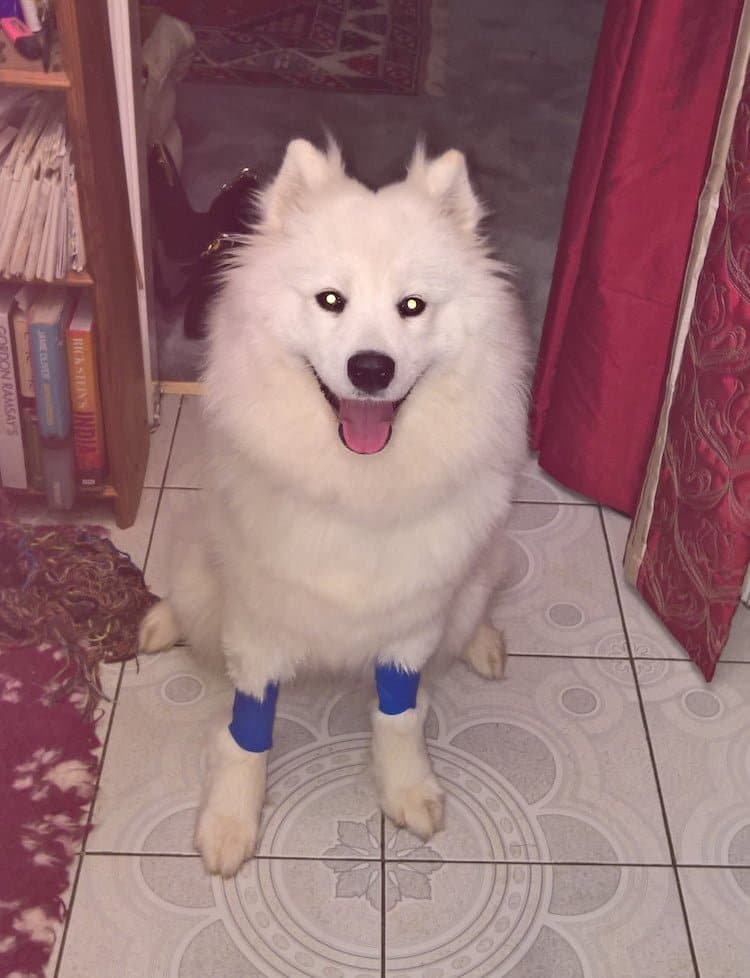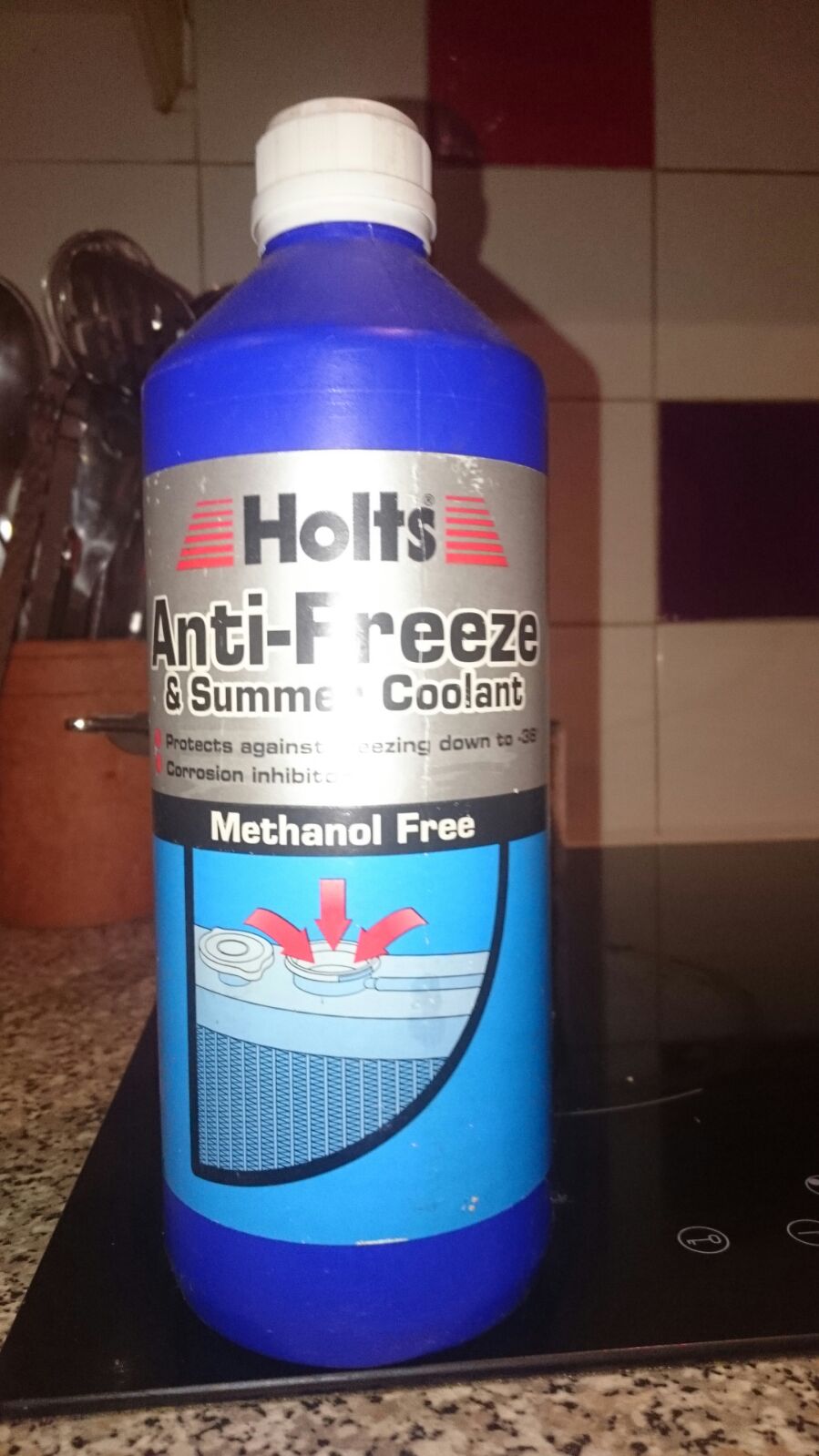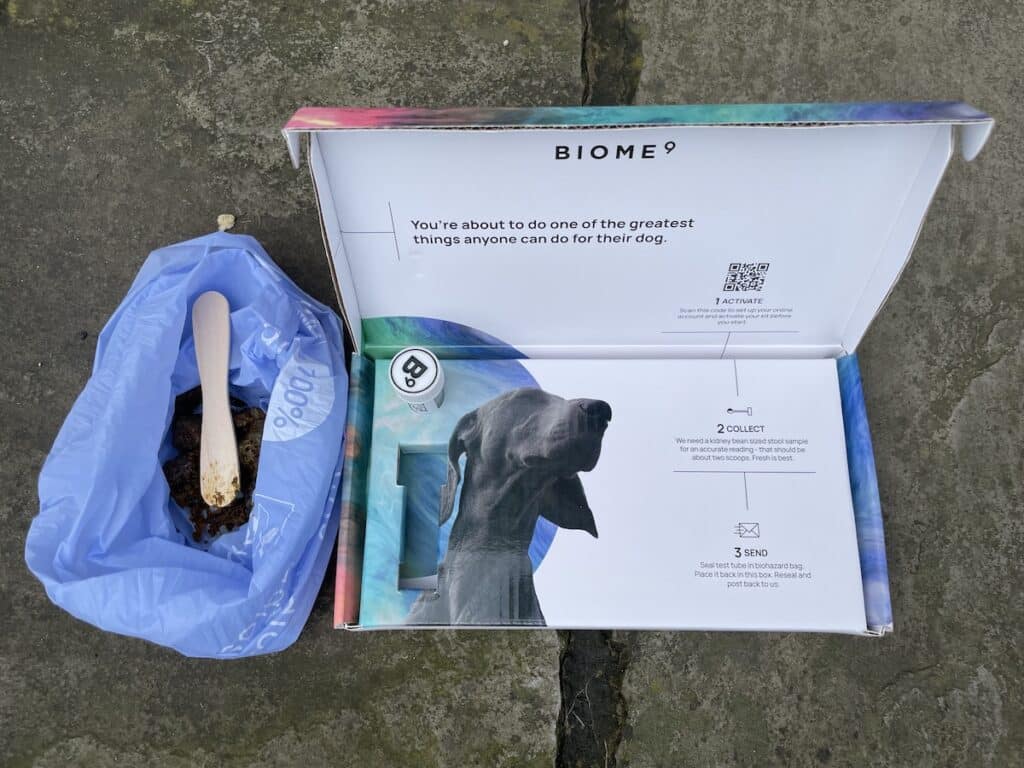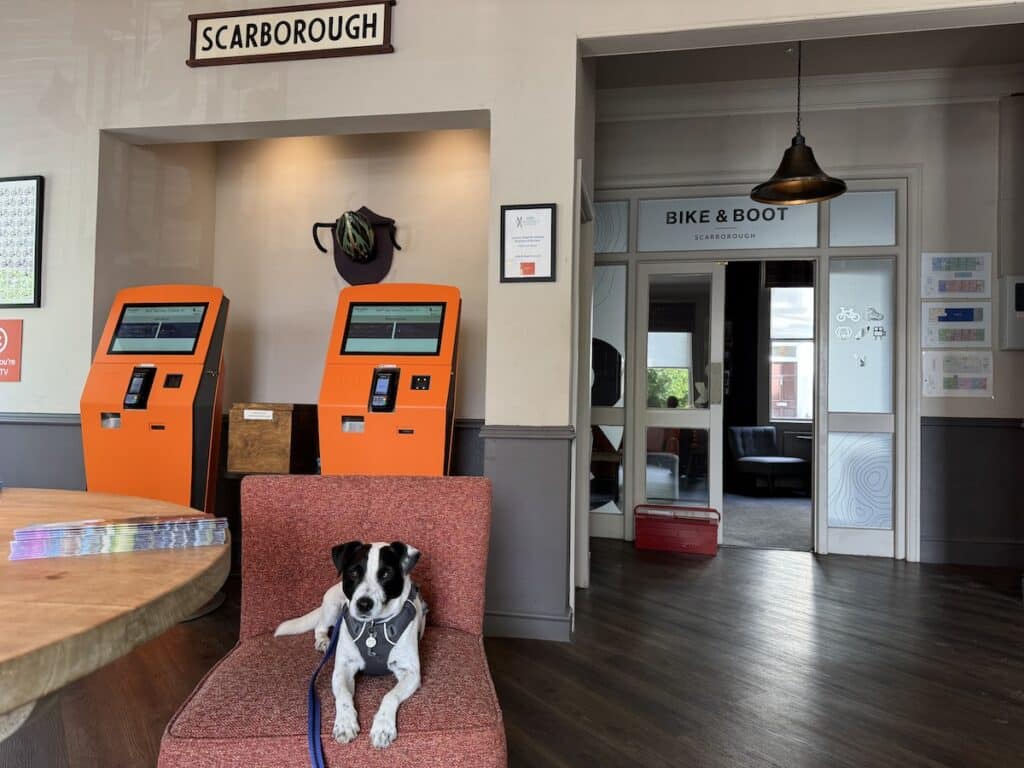Did you know antifreeze could poison your pet?
As the cold snap kicks in, we’re using it for our cars, in water features and might have bottles in the house.
For Carole Wigglesworth and her partner Simon, both 47, this nearly proved fatal for their Samoyed Mischa after she bit into a bottle.
Luckily Carole acted swiftly and took her straight to the vet who flushed out the poison with VODKA!
She said: “We came home and found her chewing a bottle of antifreeze in the hallway.
“It was just terrifying but had we not caught her the outcome could have been a lot worse. We called the vet and they told us to bring her immediately.
“We were all distraught at the thought of losing her.”
Staff at Vets4Pets in Northampton acted quickly and put her straight on a drip.
Vodka was flushed through her system as the ethanol from the alcohol neutralises the anti freeze.
Vet Jenny Millington explained: “Mishca was very lucky that her owners realised what she had done as soon as they saw her with the bottle.
“Antifreeze contains ethylene glycol which is toxic for animals and if not treated within a few hours it can cause complete kidney failure.
“It’s one of the most dangerous poisons that we deal with. With the treatment, first we try to make the animal sick to get rid of any toxin.
“She also had a range of fluids to flush out her kidneys and we treated her with vodka in a drip because the ethanol in it acts as an antidote stops the ethylene glycol doing any further damage.
“She probably had 100ml of vodka administered very carefully.”

Mischa was only a puppy at the time and Carole hopes her story helps owners realise the risks.
Each day she had several blood tests too to monitor toxins in her system and check her kidneys were working and a week later she was allowed home.
Carole, from Northants, said: “She was really happy to be back, but still a bit red eyed and jaded after a week on the vodka.
“We did try to see the funny side and said she must had had quite a hangover. But owners need to be careful,
“Dogs pick up bottles and chew them, and we didn’t even know the bottle was there. It had been lay behind a curtain from before we’d even got Mischa.
“Now we are so vigilant and don’t leave anything around that she could chew other than her toys. We are so thankful to have her with us.”

The advice from vets is to act quickly as every minute counts.
The Veterinary Poisons Information Service received 51 enquiries about antifreeze or ethylene glycol poisoning in 2016, 29 cases in cats and 22 in dogs.
Out of the seven dog cases they received feedback from, three survived and four were euthanised.
Meanwhile in 2017, Cats Protection recorded 189 suspected cases of antifreeze poisoning. As they hide under cars, they can lick up drops that fall from the engine.
Dr Huw Stacey from Vets4Pets said: “Not many drivers or pet owners are aware that their pets are at a high risk of falling ill from antifreeze.
“Signs of antifreeze poisoning can show within 30 minutes of ingestion, as mono ethylene glycol is very fast acting and, without treatment, a pet can die within 24 hours.
“Just one teaspoon can prove lethal for a cat and one tablespoon for a dog.”


Motorists are urged to clean up spills and owners to watch their pets for signs of poisoning.
As well as biting into bottles or licking water from under cars, pets are at risk from water features too, where owners use it to prevent them freezing over.
Symptoms to look out for include vomiting, seizures and increased thirst and if untreated can cause kidney failure.
Jacqui Cuff from Cats Protection is calling for labels to be marked as hazardous to pets.
She said: “Many labels already warn about the danger of antifreeze to children if the product is consumed, but we’d like companies to add a warning regarding the danger to animals too.
“In the longer term we’d like to see antifreeze manufacturers developing alternative non-toxic antifreeze products.”
If you’re concerned about your pet, visit your vet immediately and you can find more advice for pets in winter at www.vets4pets.com.
And if you’d like general health tips, read our post on First Aid for dog owners.





